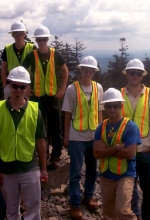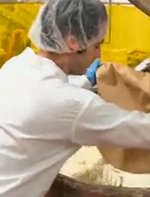
“Hello! Please Come In!” That’s the typical welcome sign as you enter rural communities across the United States. But some rural towns and businesses now add signs that read “¡Bienvenidos!” (Spanish) and “Zoo siab txais tos!” (Hmong), among others.
Rural Family Economic Success Action Network
Helping low-income rural families earn more, keep more of what they earn, and grow what they keep into assets.

“Hello! Please Come In!” That’s the typical welcome sign as you enter rural communities across the United States. But some rural towns and businesses now add signs that read “¡Bienvenidos!” (Spanish) and “Zoo siab txais tos!” (Hmong), among others.

We all want the best for our children’s futures: a quality education, meaningful employment, stable finances, good health and well-being. But for rural children living in poverty, the future isn’t so bright. In 2014, nearly 25 percent of children in nonmetropolitan areas were poor, compared to about 21 percent in metropolitan areas. According to the […]

Rural places face significant health challenges in the United States. According to data from CountyHealthRankings.org, rural places rank worse on health behaviors, health outcomes, and access to clinical care than their urban counterparts. So it takes some mighty bold thinking and acting for a small town to create a healthier community in just five years.

Helping families get ahead takes investment. And not just financial investment, but investment of time, energy, relationships and know-how. In rural communities with limited resources, it can be a challenge to find the financial, intellectual, political and social capital to support hardworking families in their efforts to not only get by but truly get ahead.

$24 billion is a great deal of asset-building change. That’s the annual dollar value of Earned Income Tax Credit (EITC) claims for working families in rural America*. EITC is one of those critical poverty-fighting tax benefits that rewards work for low- and moderate-income working people. At lower incomes, the more a family earns, the more […]

Three hours north of Maine’s largest city, Franklin County leaders envisioned a thriving community in which working families could attain higher education levels that improved their family’s economic status [RuFES Grow It Goal 5]. Like their counterparts in many rural places, Franklin County families faced three major barriers to getting the post-secondary education they need […]

In 2011, the hiring manager at Quality Pork Processors contacted Jake Vela, executive director of Austin, Minnesota’s Welcome Center, to let him know that 300 new immigrant workers would soon begin working at their Austin facility. That call was the catalyst for Jake and his staff to learn everything they could about their newest neighbors.

“How are we doing?” In rural America, this simple phrase is often a greeting wrapped up in a question. Achieving widespread family economic success requires that we regularly ask that same question to measure how far we’ve come and guide where we’re going. In this same spirit, the Annie E. Casey Foundation recently released the […]

Doing business in smaller communities requires finding good employees from a smaller pool of workers. Retaining those good employees can be the difference between profits and loss, or between staying put and relocating. So why, many rural employers wonder, do their businesses experience such high turnover in the ranks of their low-to-moderate wage workforce? Isn’t […]

Over the past 10 years, the national obesity rate has increased – from less than 15 percent in 1990 to over 30 percent in 2010. So has the dialogue about what to do about it. While a groundswell of inspiring media stories feature communities taking on obesity through farmers markets and walking trails, few stories […]